
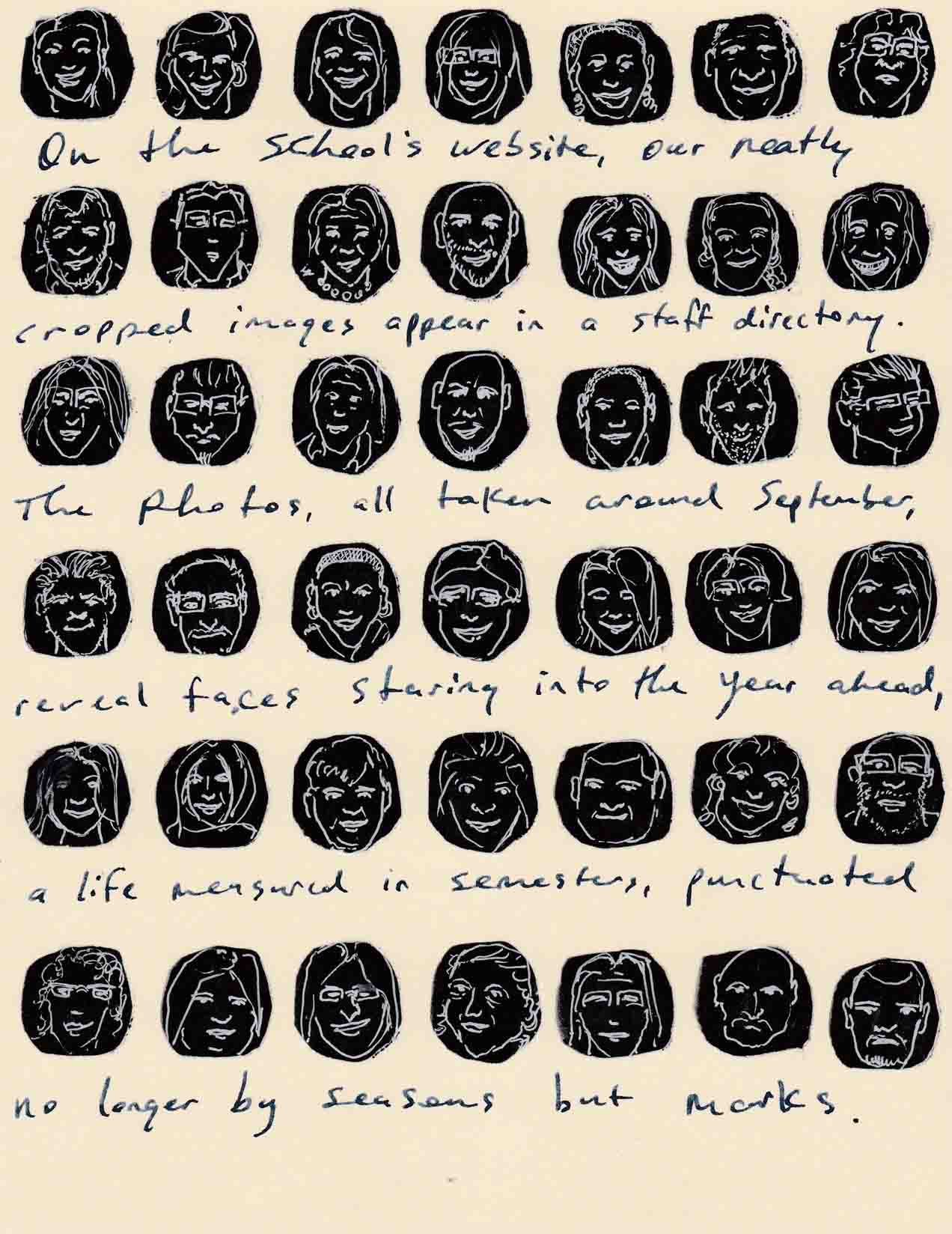
Faces
On the school’s website our neatly cropped images appear in the staff directory. The photos, all taken around September, reveal faces staring into the year ahead, a life measured in semesters, punctuated no longer by seasons but marks. Our lives ever slouching towards September. The vocation has a gravity which pulls with the force of planets.
![]()
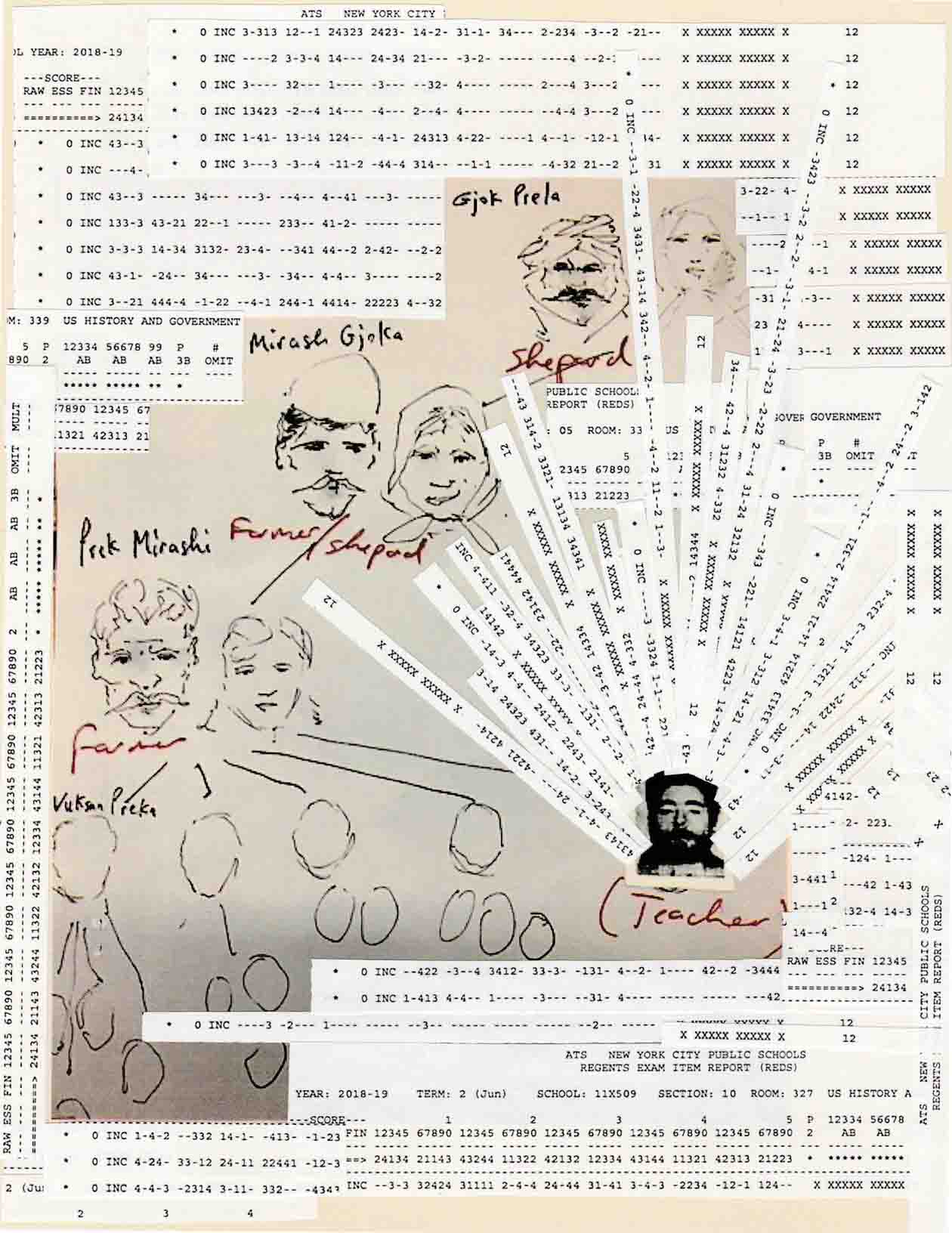
Doubt
On the worst days I am gripped by an acute sense of doubt which causes me to question what business I have teaching in the first place. The scores roll in like a fog. They aren’t good despite your best efforts. Your colleague hands them to you. What shame. The number sixty-five is suddenly imbued with an almost Pythagorean quality; your eyes scan for anything better than that. But only here and there do you find that threshold met. You wince and try to keep a straight face. All that work. You covered the articles of confederation several times; God damn you, John Marshall, and who saw strict constructionist coming? Misfortune kisses you on the brow, and you wonder if it would have been better if you never came to America at all. A life spent on the edge of your grandfather’s fields doesn’t sound so bad.
![]()
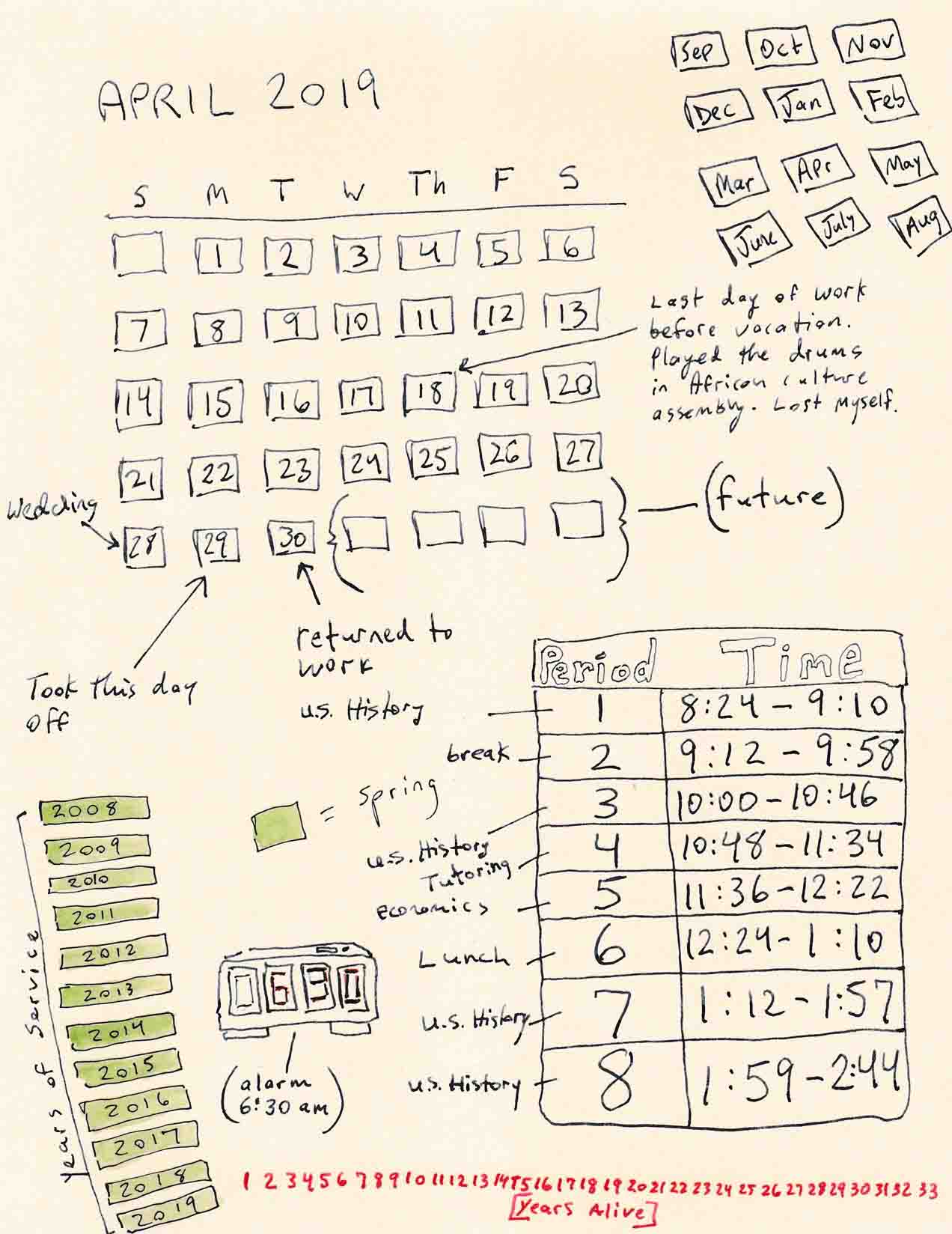
Time
For teachers the passage of time is measured in the seconds before class, semesters, cohorts, years, summers, forty-six minutes of instructions, five times a day, the thirteen years which have somehow passed (and the seventeen left to go). Time ebbs forward. The Japanese writer Kobo Abe said, “Year after year students tumble along like the waters of a river. They flow away and only the teacher is left behind, like some deeply buried rock.”
![]()
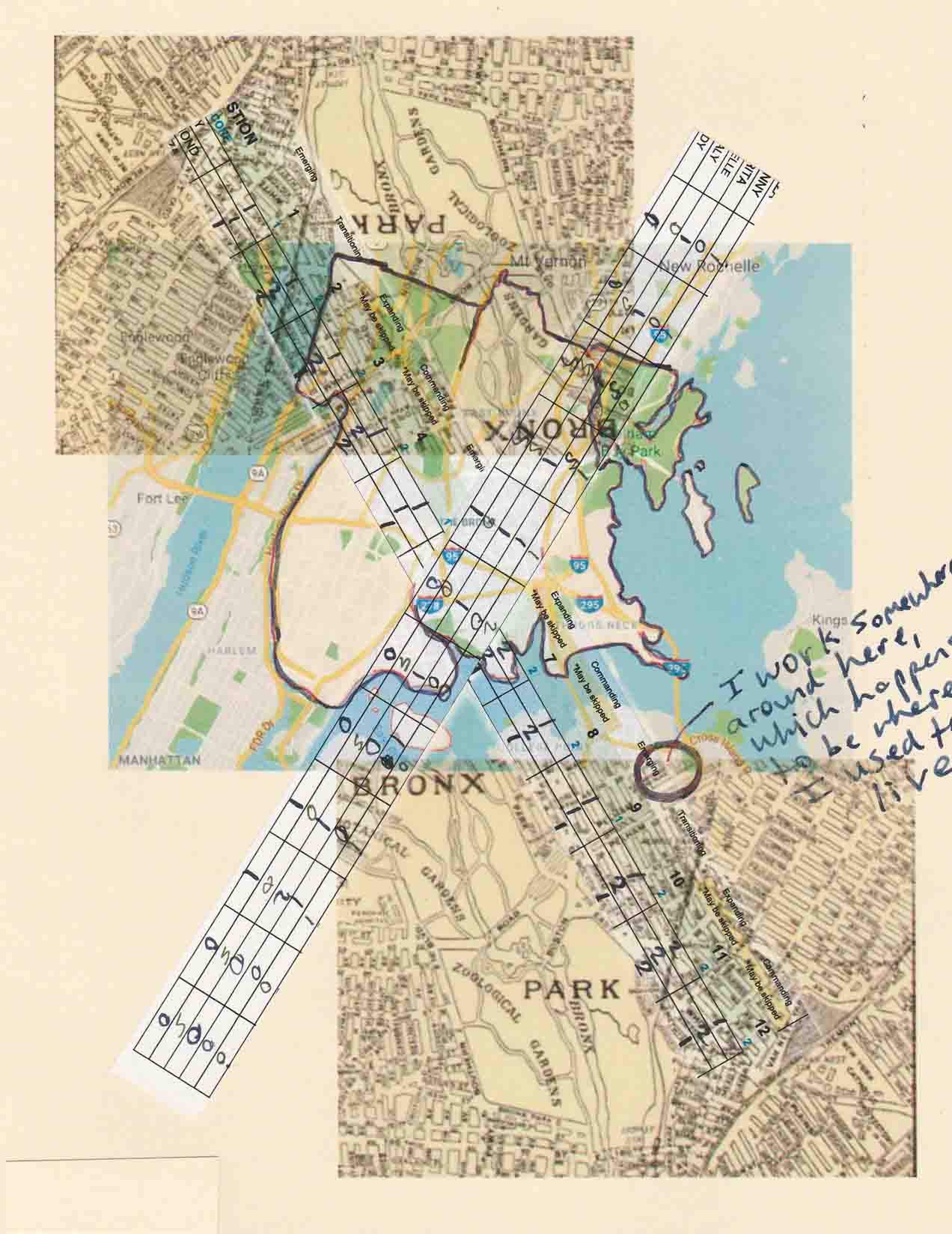
New York
1987: my family arrives in JFK from the former Yugoslavia. Within a few months I live in the Bronx, I inhabit cavernous buildings all of which seemed dark; I attend massive schools: P.S.105, P.S. 83, Lehman high school, Christopher Columbus high school. And when it’s college time, I remain in the Bronx and when I become a teacher, I persist. Then one day I move but return each morning to teach. In some cultures, it is understood that the soul returns to the place which the body previously inhabited.
![]()
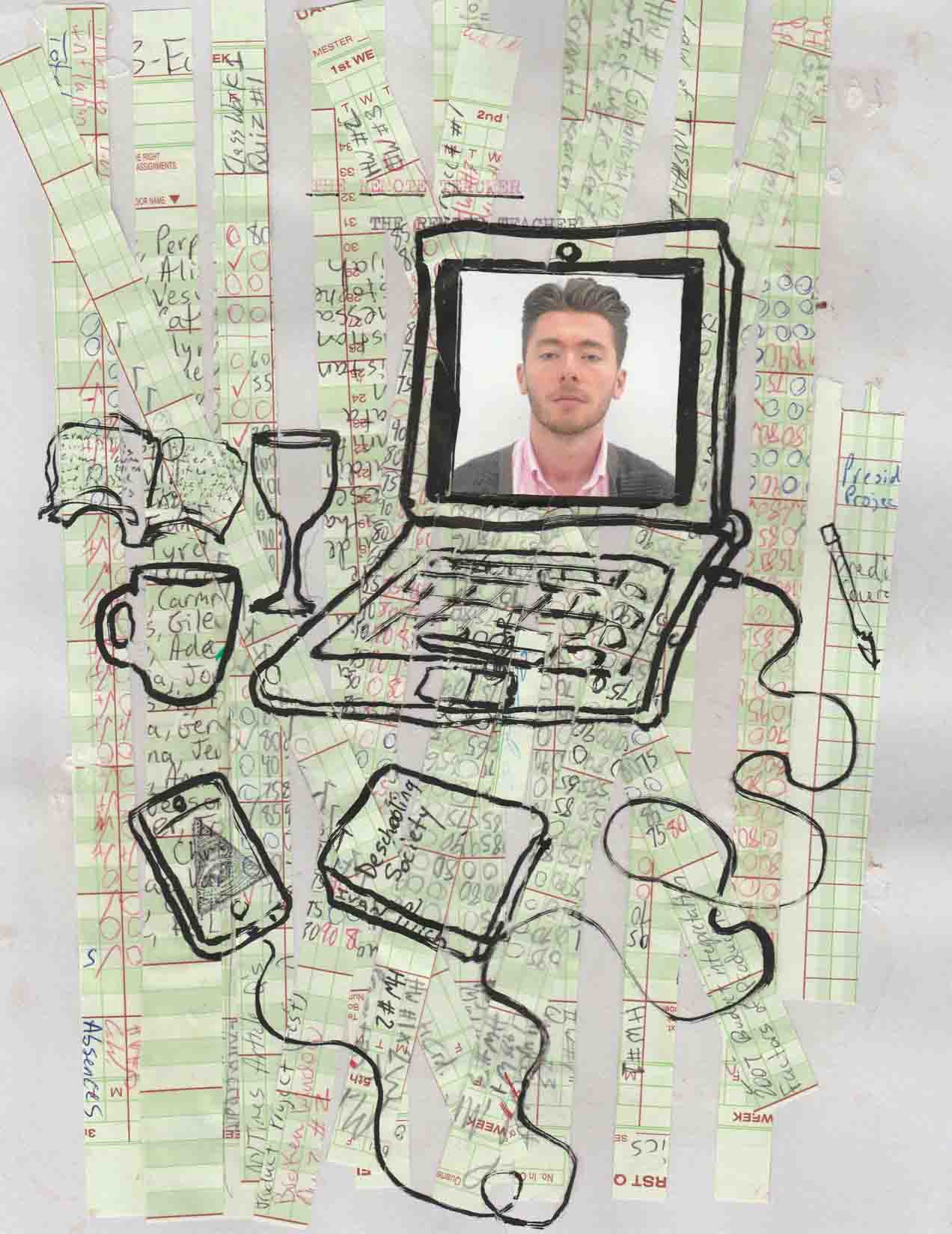
Remote Teaching (April, 2020)
I seldom sleep. The phone near my head shines like a beacon, alerting me to new submissions or recently liked videos. My explanation of the Cold War is delivered remotely, somewhere beneath the blankets of this plague, in a sun-lit room which only weeks ago functioned as an office. The desk is laden with papers, yesterday’s coffee grown cold in the cup sits beside half considered books and the dry rings of sour wine. There is no letup in the news. It colors every single day; it is the background noise of existence. I can’t bear to watch it; I can’t turn it off. When I’m not grading papers, updating google classroom, corresponding with confused students or video messaging them, I visit the living room and watch the television. I toggle between news stations. Things will get worse we are warned, always worse, ever leaning towards the apex which, when it arrives, will be awful—of this we can be sure. I watch the curve like the edge of a knife. In a week or two my wife and I are expecting a baby, a little boy. He is due just as this thing reaches its terrible height. So many things I was unsure of that April, only I knew my son would be named Prek, after my father.
![]()
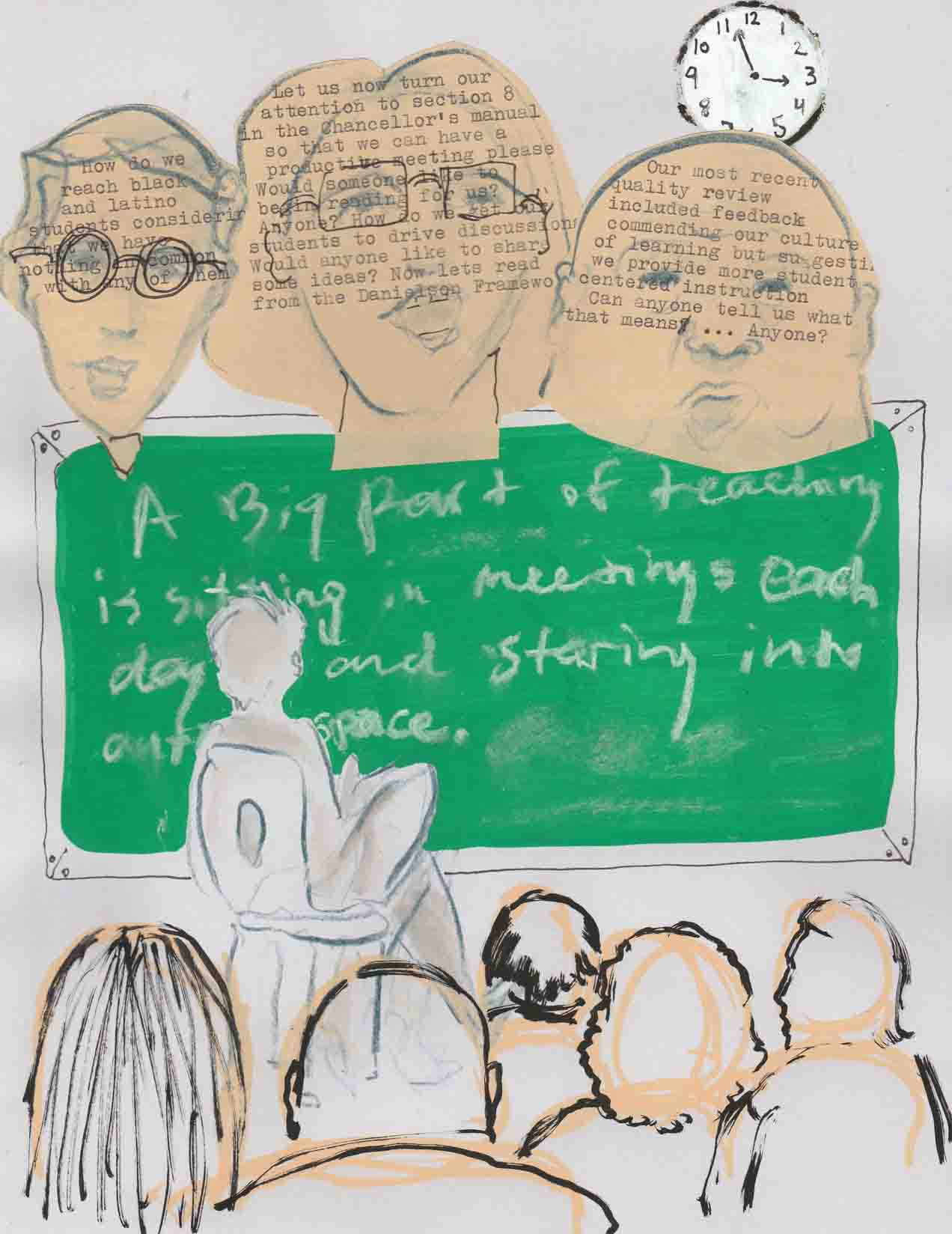
Professional Development
At least a few times a week most teachers must endure a series of meetings. The worst of these have us before consultants or experts who we are compelled to listen to in total silence. They are men and women of confidence, they repeat mantras, inspire rigor, engage, they offer strategies, share closely guarded secrets; many have an oracular sense of prediction. They wear nice suits and often project strong voices and remind me of something Primo levy once wrote: “To be a consultant is the ideal work, the sort from which you derive prestige and money without dirtying your hands, or breaking your backbone, or running the risk of ending up roasted or poisoned”.
![]()
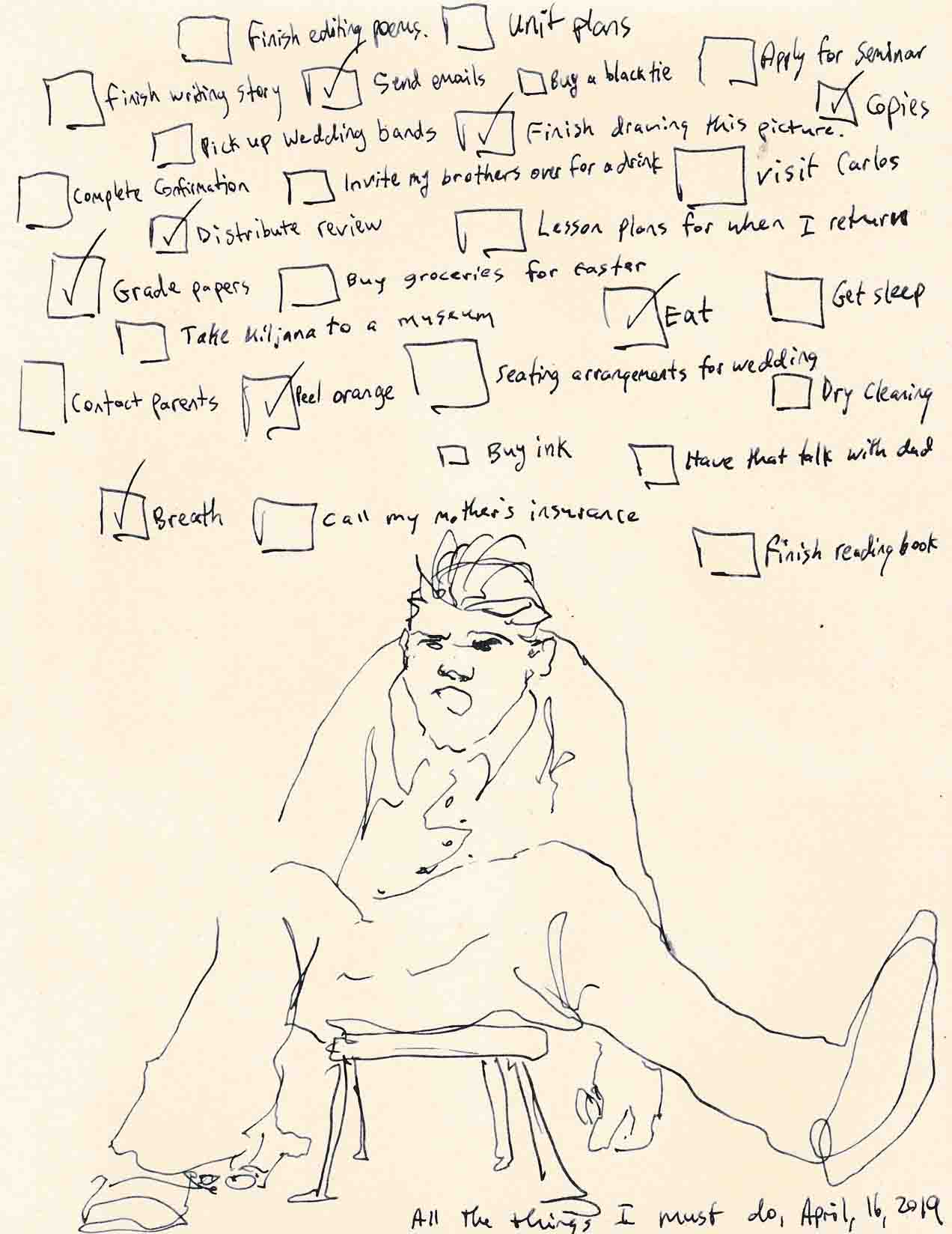
Agendas
Besides the usual workload and 100 students a year, the teacher usually has a life outside of the classroom and it is laden with things which must be done. Grade those papers or pay these bills? Call the parents or read The Sunday Times? Eat my lunch or make those copies? Who will write my lesson plan when I must pick up the groceries; who will send my mother to her checkup if not I?
![]()
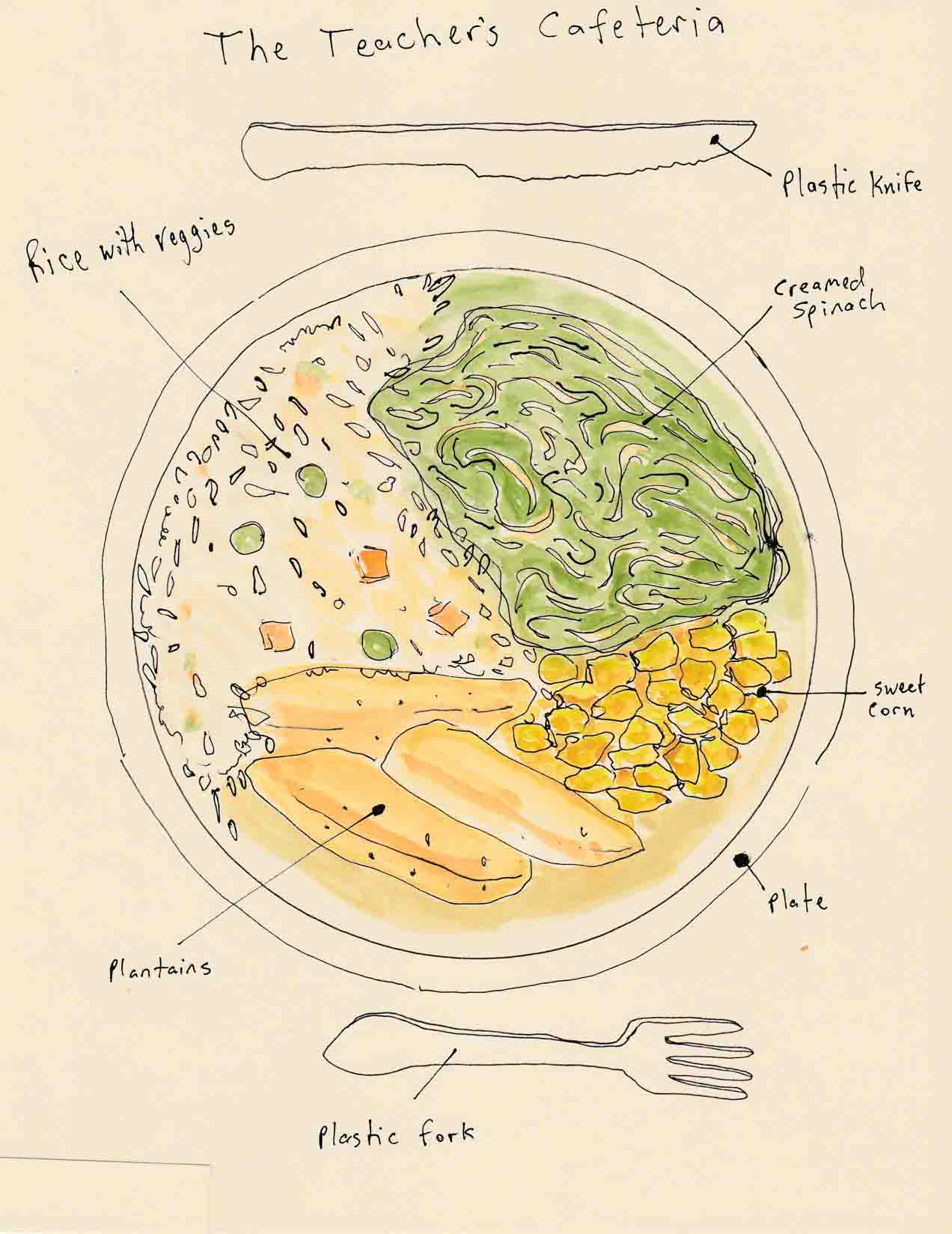
Lunch
On most days I pack a small piece of fruit for breakfast and wash it down with a large thermos of coffee. For lunch, I hastily devour a peanut butter sandwich and nuts as I rush to fetch my copies. Sometimes I treat myself and sit in the cafeteria to enjoy a hot meal with a friend.
![]()
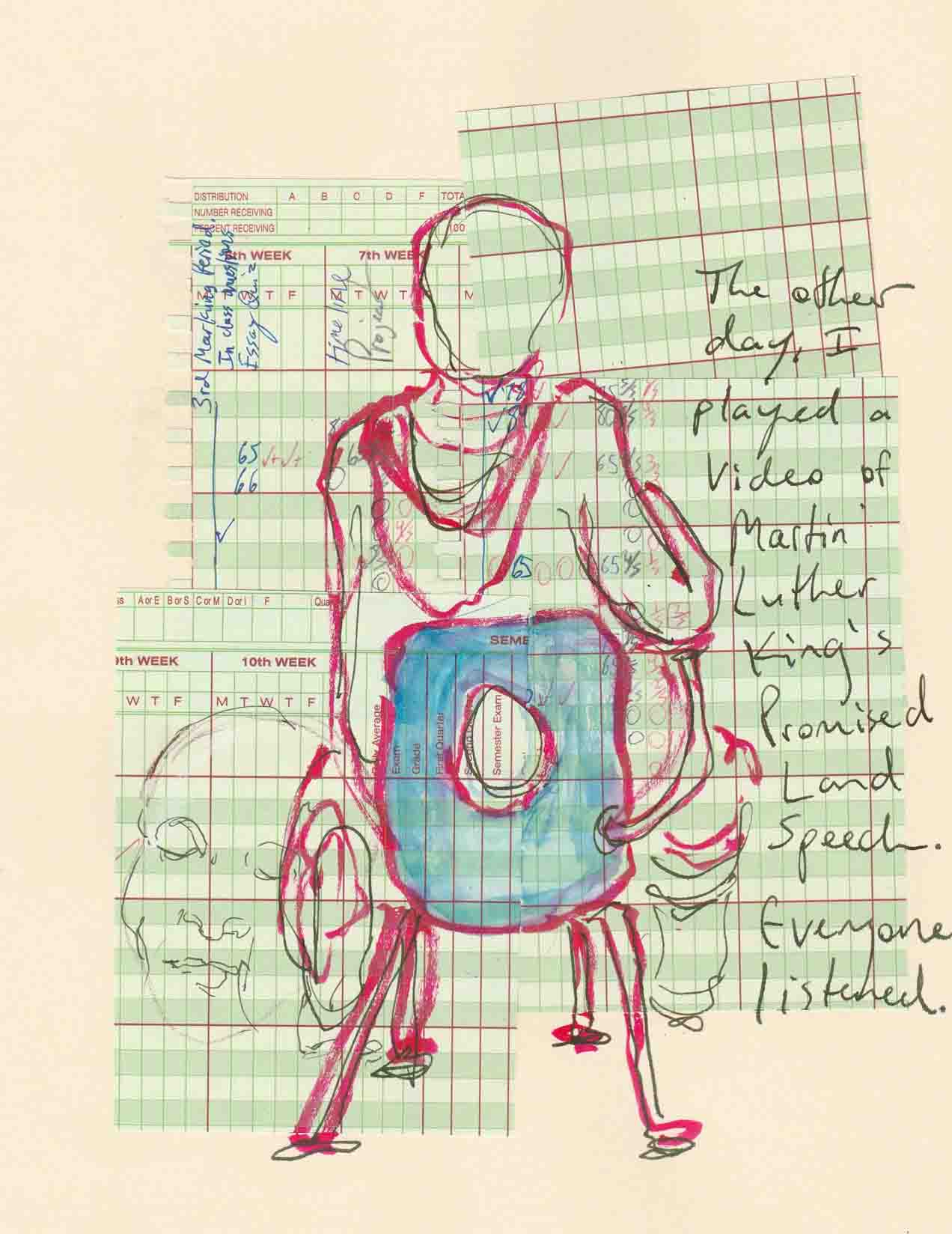
Martin Luther King
The small classroom is filled with students exhausted by eighth period. Outside, the spring seems to mock us with her beauty. A squirrel rattles the window pane and suddenly Doctor King’s voice fills the room and I’ve got the volume up so high that three classrooms away they can hear the echo. “I have seeeeeeeeeeeeen the promised land” says the martyr. We listen, and have forgotten the world, the voice awakens in us something dormant.
![]()
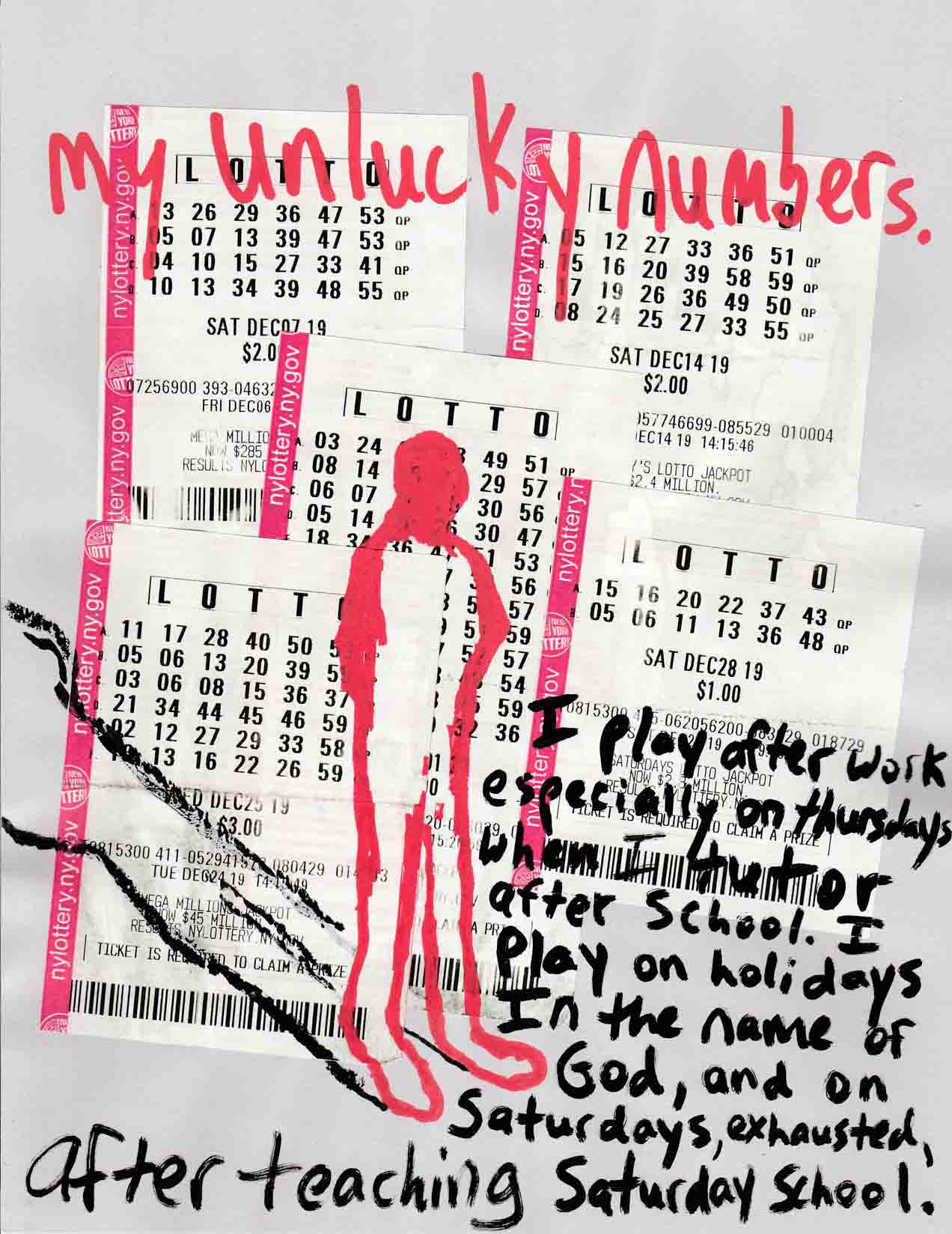
Lotto
Once or twice a week I play the lottery, not much only a dollar or two. The math teacher smiles and says I have no chance, but he means well. So far, all my tickets are losers. People tell me I should save my money instead, put it away for retirement, $10 a week times 52 weeks, that’s $520 I am told I could buy a dog or groceries for a month. I’m tired of these doubters. I understand something that they don’t.
![]()
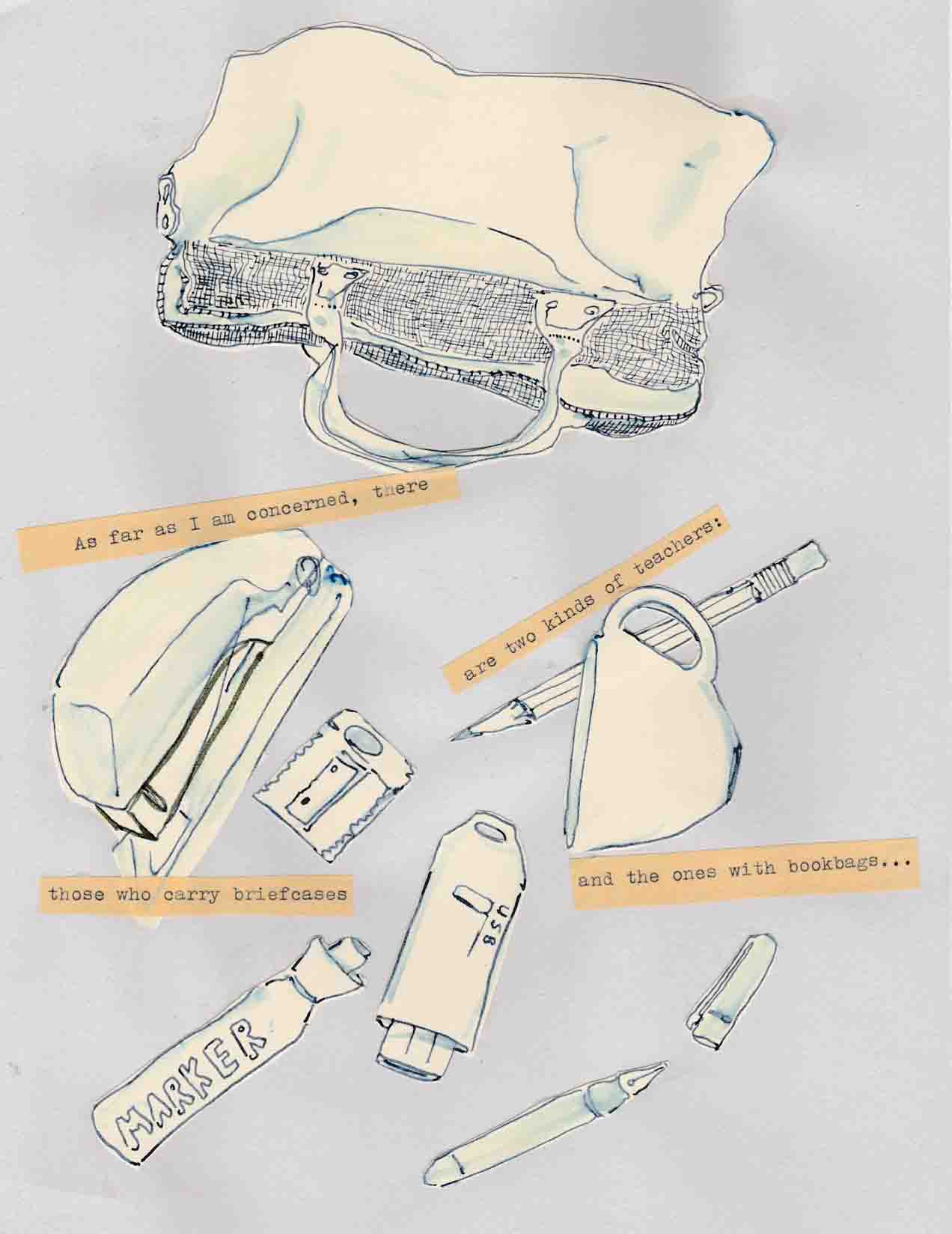
My old bag
My briefcase, a black leather sack which I carry to and from class, swollen with papers, sits in a corner of my room. It is mostly empty and neglected. I don’t miss its cumbersome weight, smacking against my side as I race through hallways.
![]()
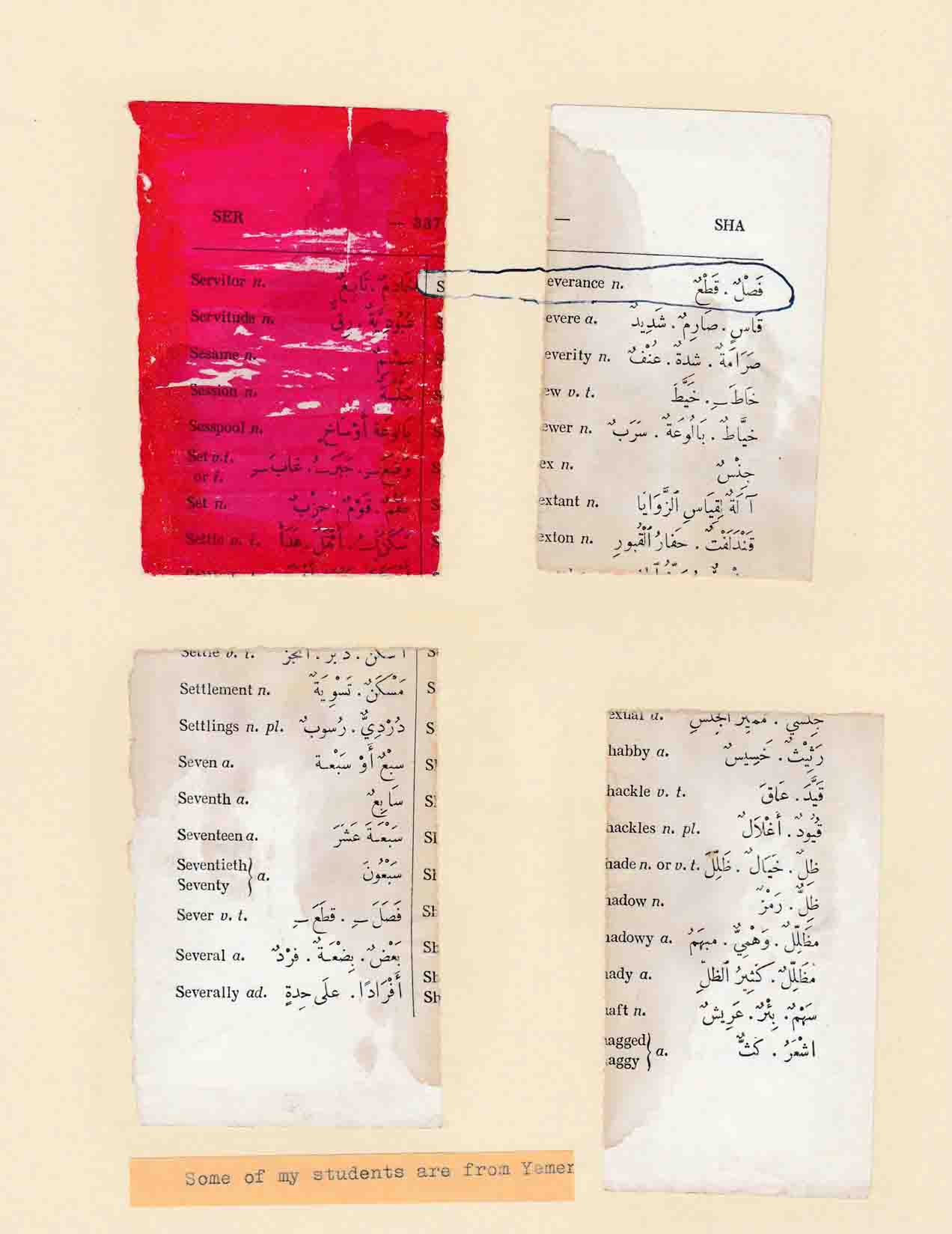
Severance
My students are all immigrants. Some have only just arrived, bewildered and quiet as a mouse. They come from Guatemala and Honduras, Dominican Republic and Albania, Ghana, Vietnam, Senegal and Mexico. Quite a few have come all the way from Yemen. The best of them make me laugh and tell me jokes in broken English. They teach me a word or two of Arabic, and I place my hand over my heart.
![]()
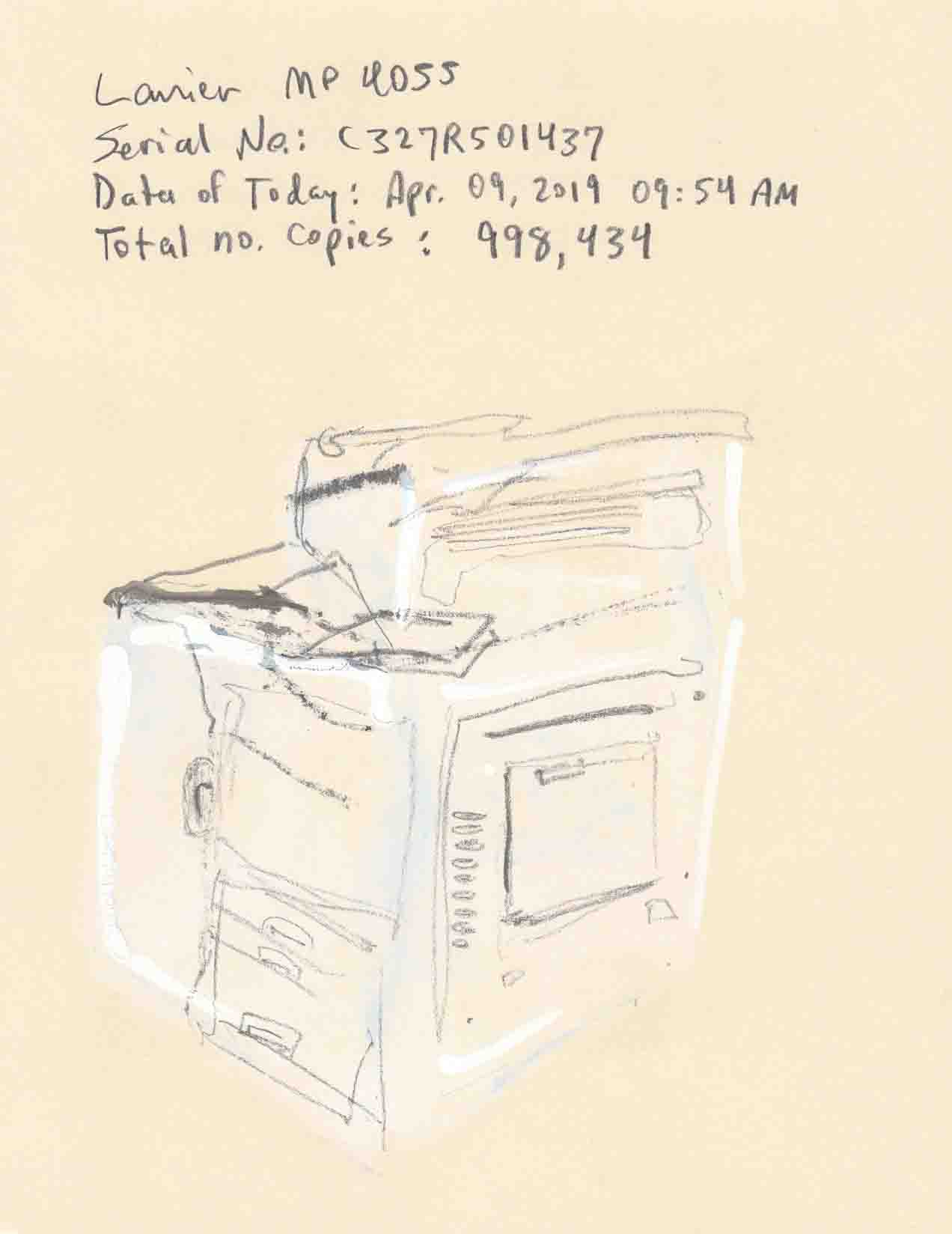
Copier
The old copy machine is always humming and without it, all would be lost. I break the spine of a book against its glass face. When it jams I fix it, removing shards of paper from between cylinders until finally it rewards me with 99 copies of a passage from A Letter from a Birmingham jail.
![]()
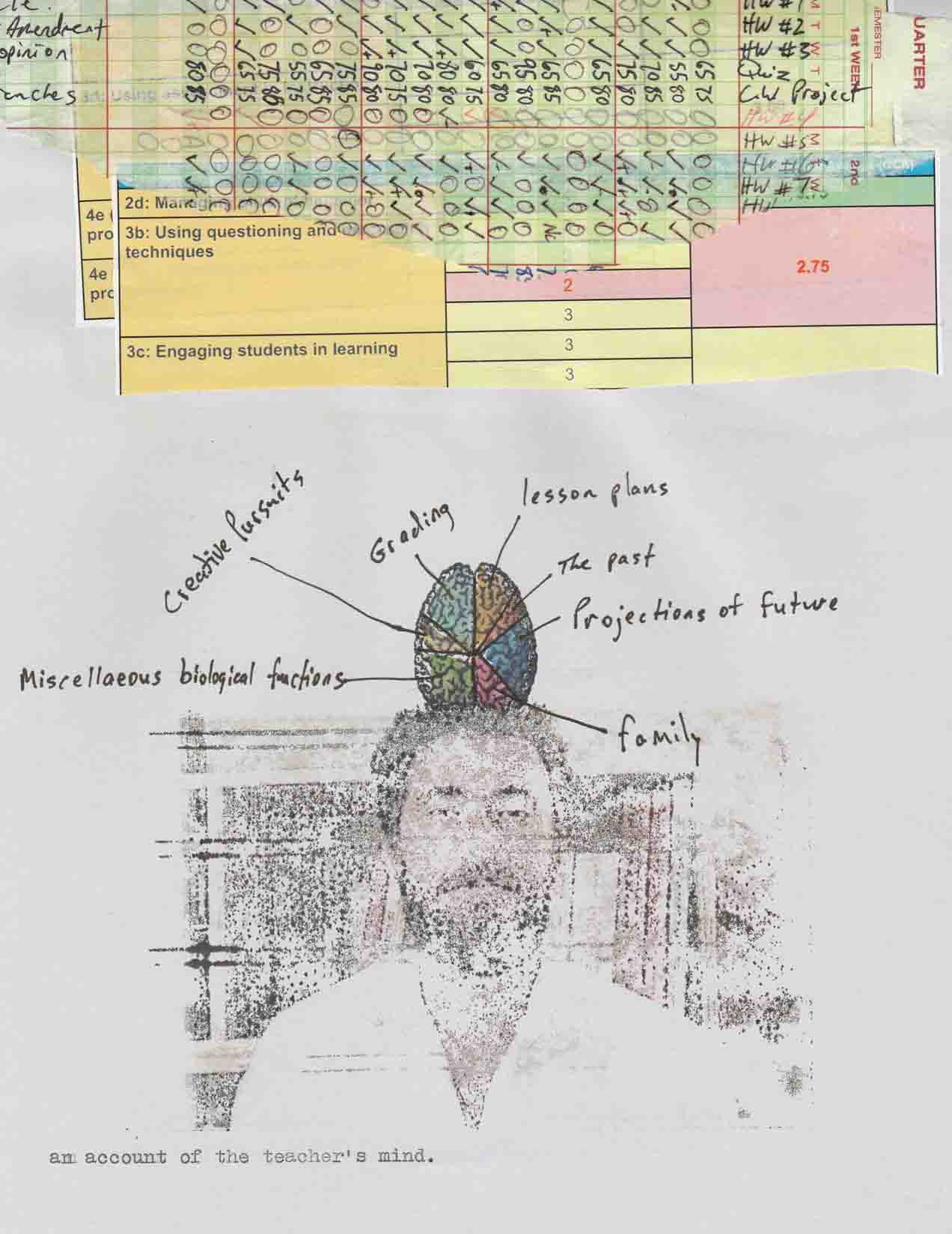
An Account
We are assured that technology will make our lives easier, but I have found this is not always the case. In regard to teaching, technology serves to inundate us with obscene amounts of data delivered via an array of apps, excel sheets, presentations and emails. Too much is never enough. My poor brain heavy as it is with the stuff of life can barely keep up. The information flows like an endless river and only the most recent data is relevant. Last year’s numbers assemble like the many grains of sand on a forgotten shore.
![]()
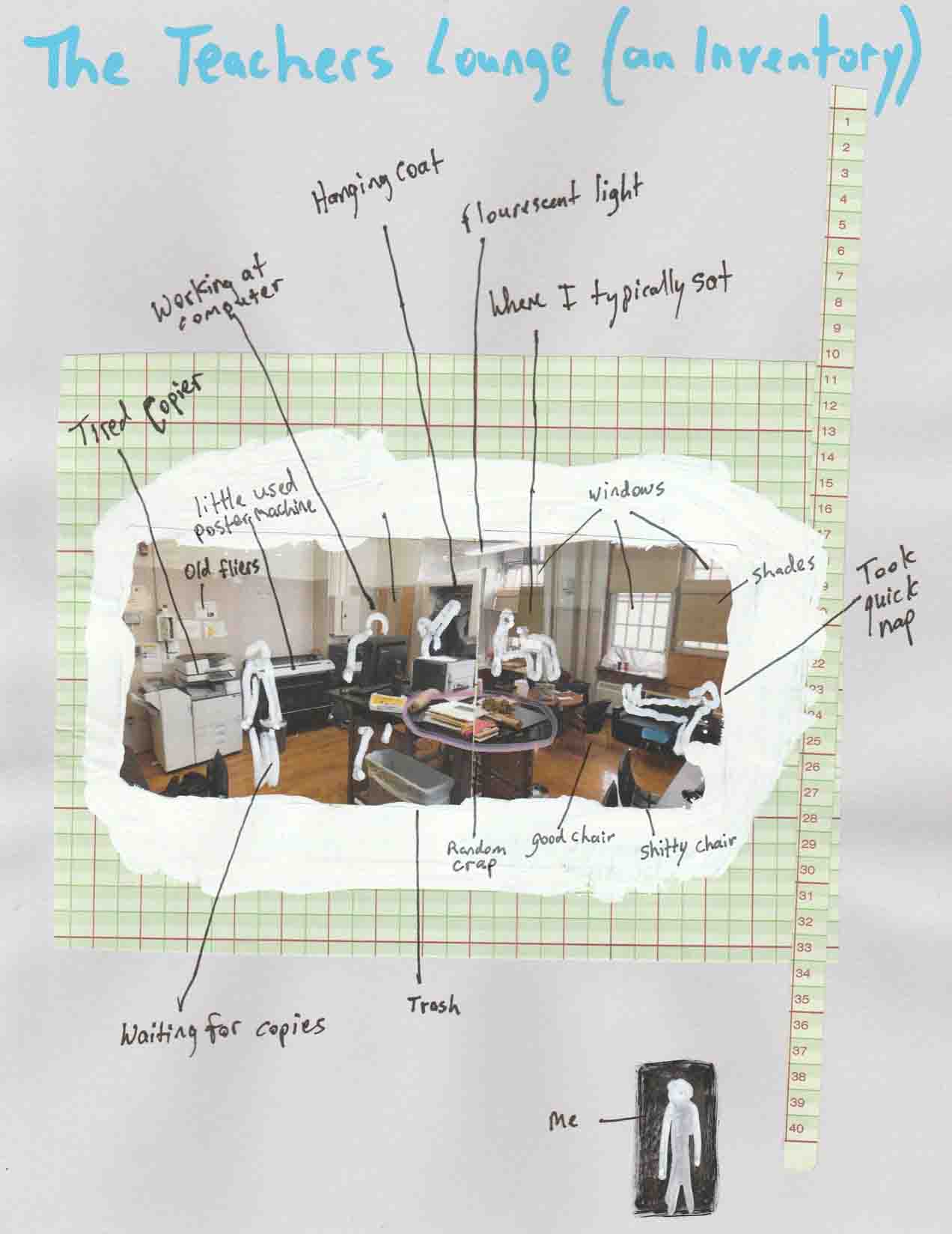
The Teacher’s Lounge
I have heard other teachers say to new colleagues avoid the teacher’s lounge. It will bring you down, all they do is complain. My advice to the new teacher? Find the teacher’s lounge; seek it out. Therein lie your brethren gather around her table and lose your papers, hang your coat keep your lunch and rest your head on the table, especially when it is heavy with thoughts.
![]()
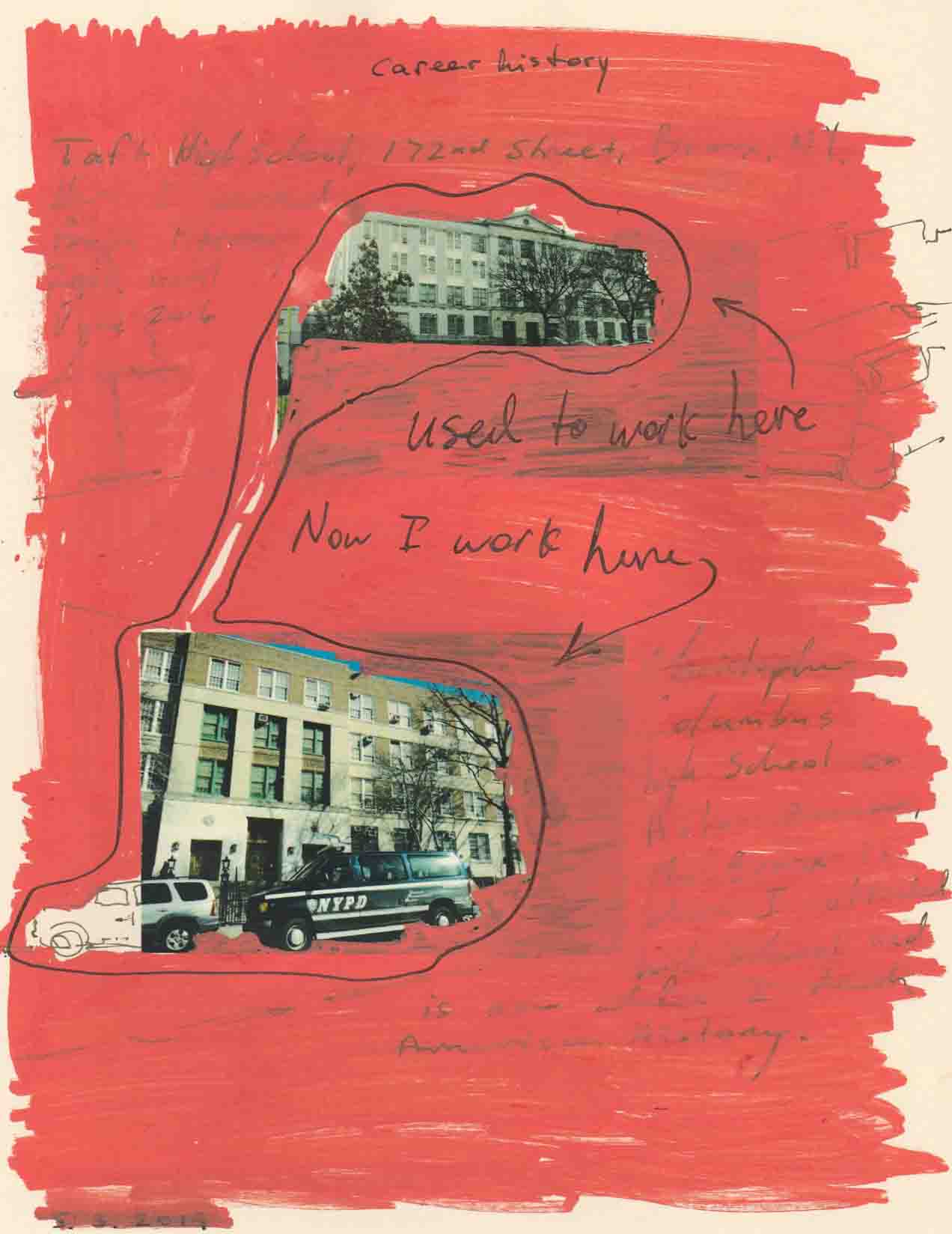
Workplace
In the Bronx there used to be a dozen or so massive high schools which occupied super blocks. Today those buildings contain half a dozen or so schools and the city has furnished hundreds of other smaller schools. So numerous are the schools that the problem of names arises. There are only so many presidents or great people in history, so they run out of names and resort to the absurd. The High School of scholars, leadership, invention, the school of promise and learning et cetera.
___________________________________
Santian Vataj was born in the former Yugoslavia to Albanian parents and raised in the Bronx, New York. Santian currently works as a history teacher at a public school in the Bronx. His work has appeared in The Cantabrigian Magazine, Prelude magazine’s website, Tin House, 100 Word Story, and Silver Needle Press.
